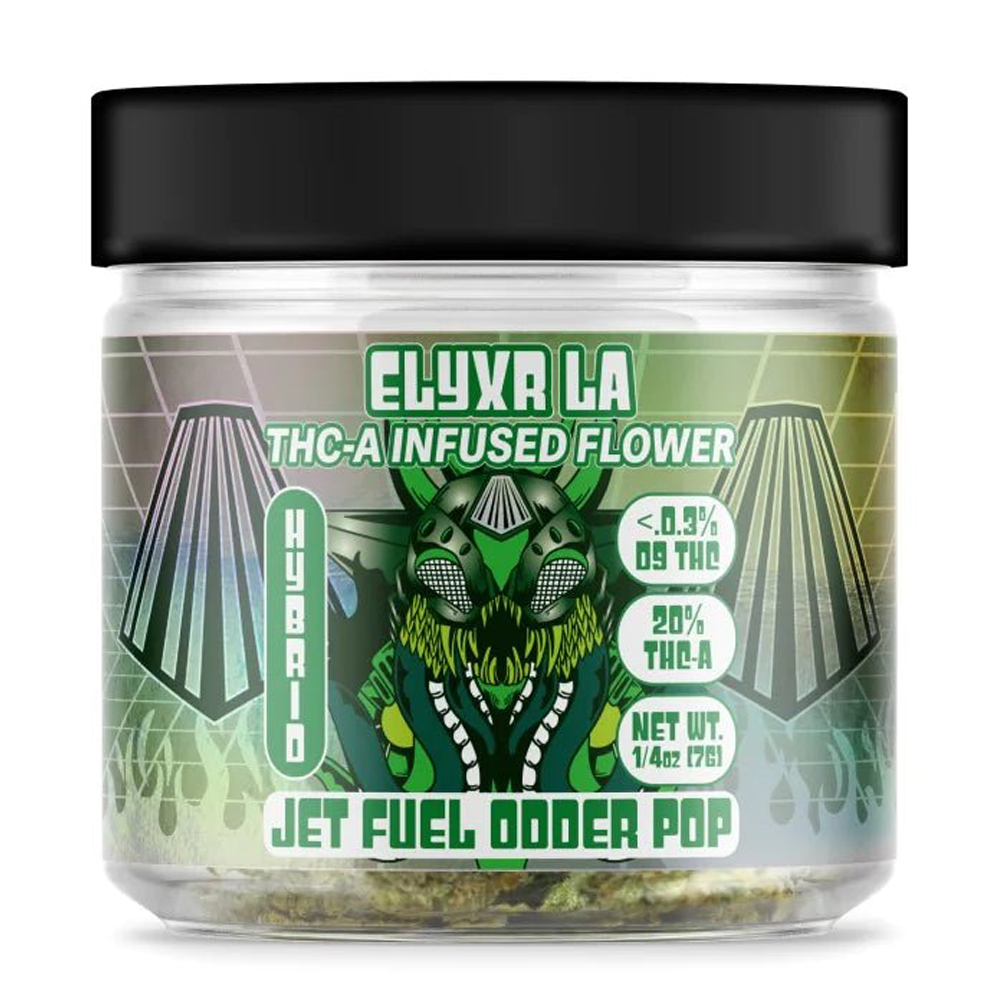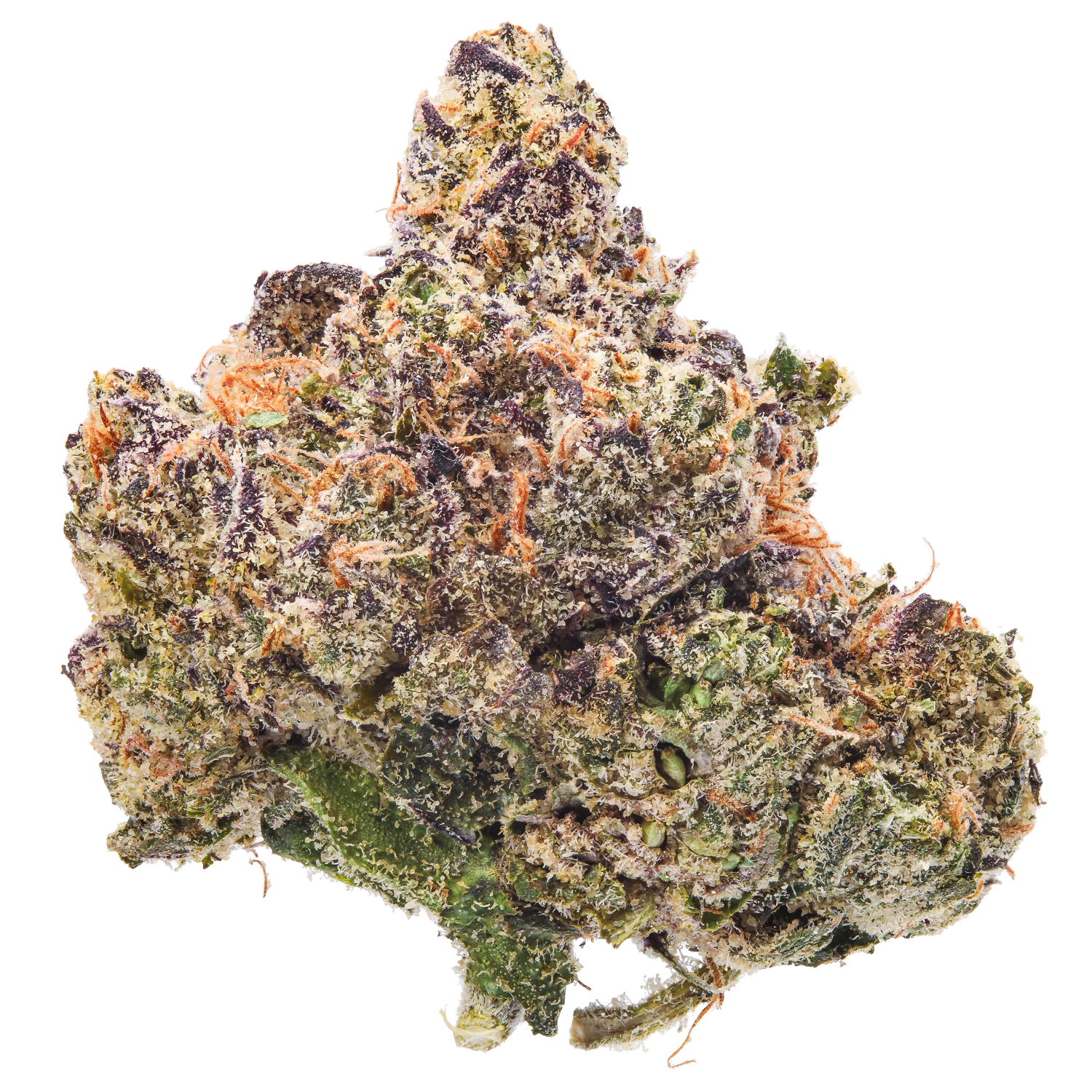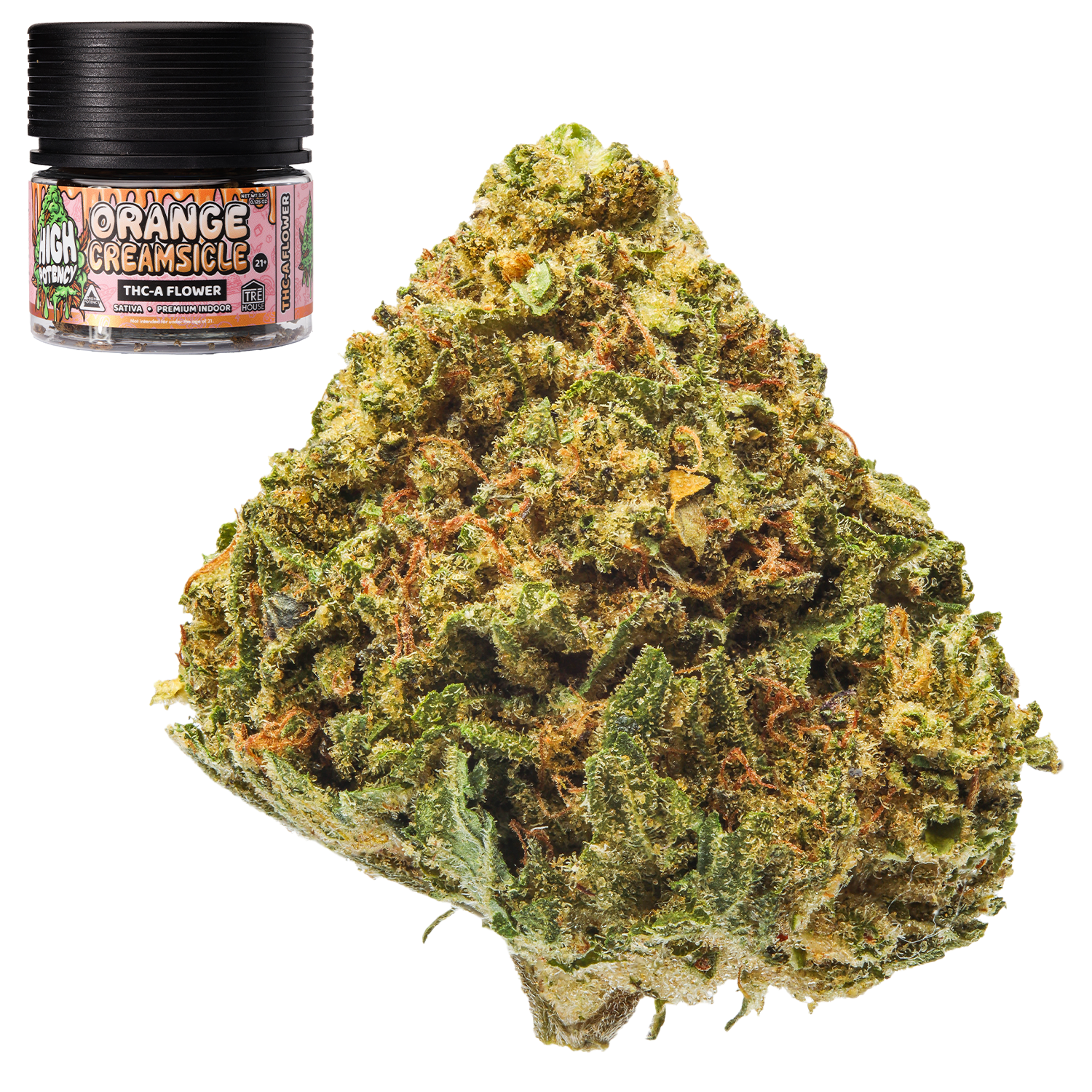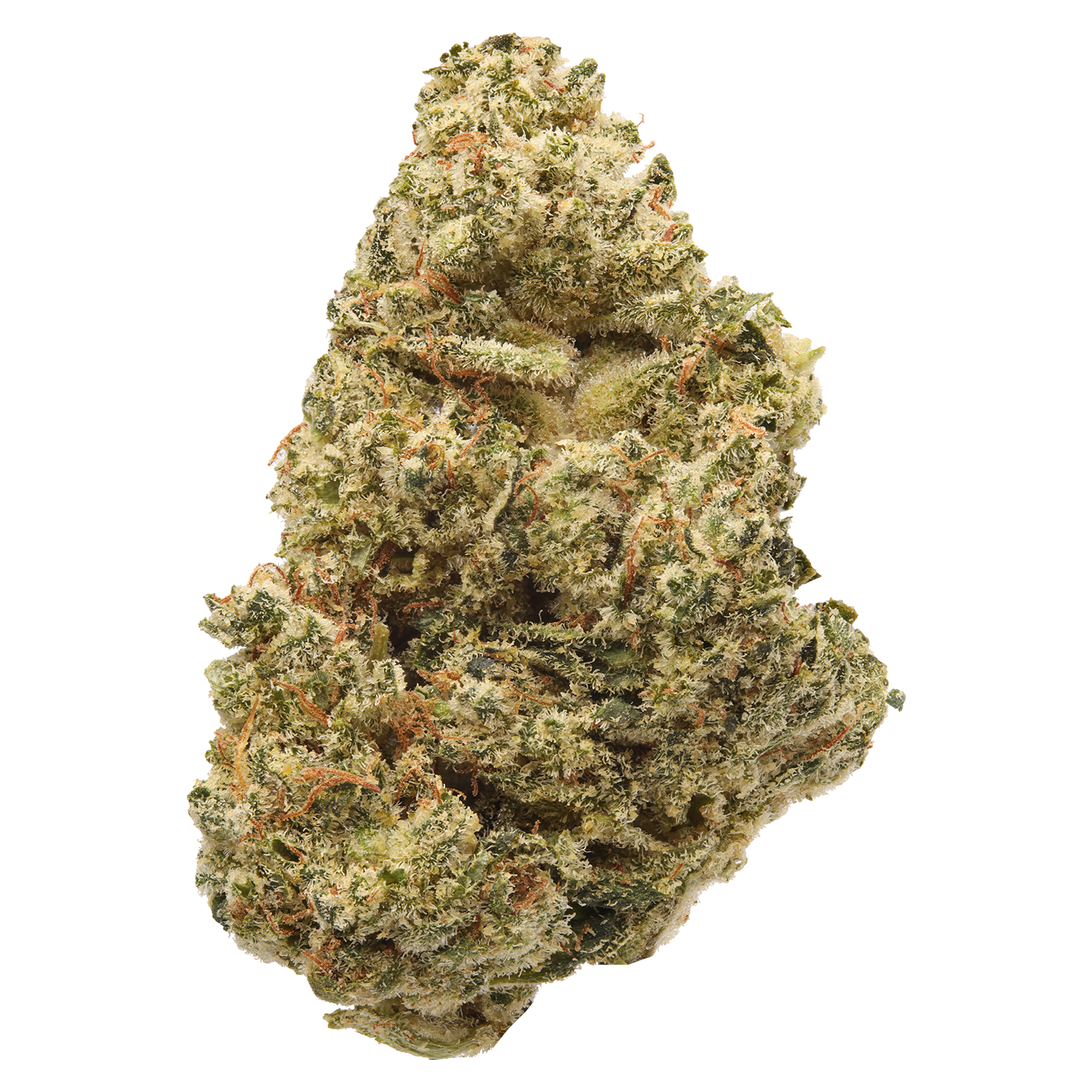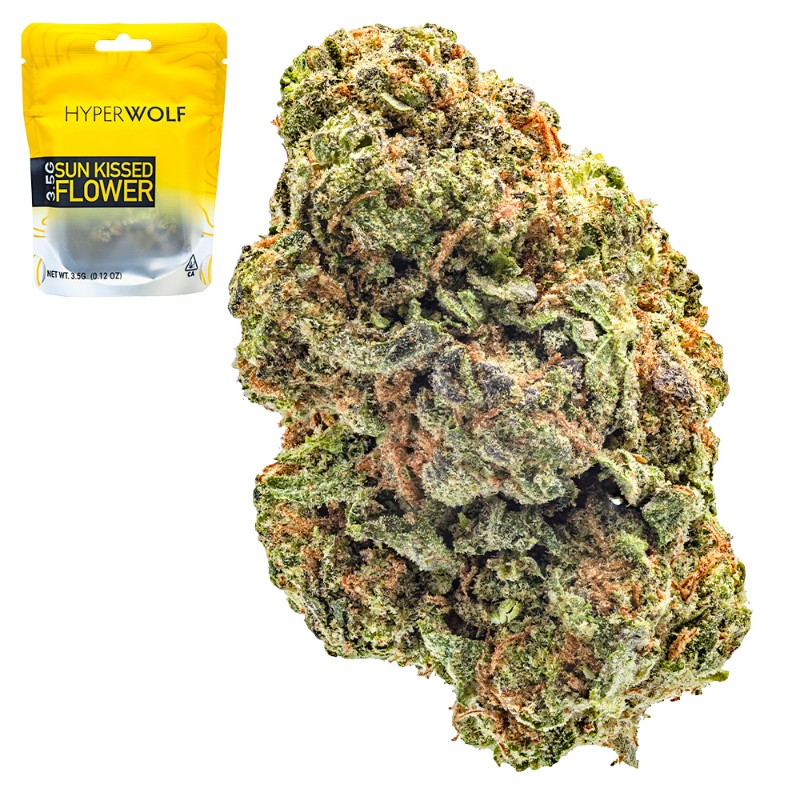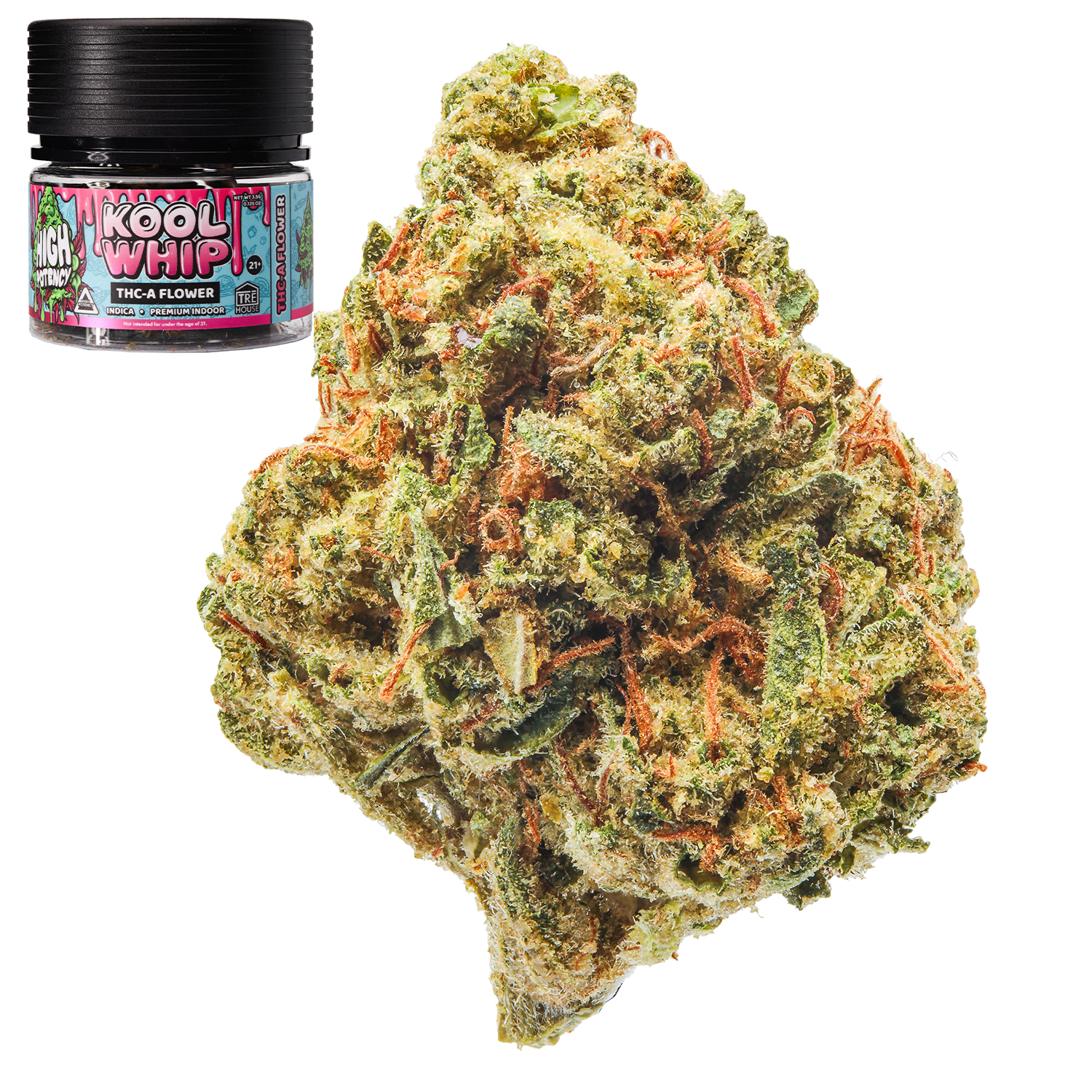Welcome to the ultimate guide on THCa side effects, where we’ll dive into the nitty-gritty of what happens when you invite this compound into your system.
Now, you might be wondering, “THCa? Is that just a fancy spelling mistake of THC, or what?” Not quite! While they may share the same cannabis family tree, THCa (Tetrahydrocannabinolic Acid) is actually the precursor to the more famous (and psychoactive) THC, the component that’s often associated with feeling like a human marshmallow on a Saturday afternoon.
But before you dive headfirst into this green world, it’s essential to understand what side effects THCa might bring to the party—because like any good rave, you gotta know what you’re signing up for!
This blog will cover why knowing these THCa side effects isn’t just smart, it’s crucial. We’ll walk you through everything from the common side effects, like a potential increase in appetite that might up your snack game, to less common concerns that could have you putting the brakes on your THCa journey. So grab a snack, get comfy, and let’s get started!
What is THCa?
THCa, or Tetrahydrocannabinolic Acid, is one of the many lesser-known compounds found in raw fresh cannabis plants. Unlike its more famous sibling THC, THCa doesn’t get you high in its raw form, but it comes with its own unique set of properties that make it worth knowing about.
Chemically speaking, THCa has an extra carboxyl group, which makes it non-psychoactive in its natural form. This structural difference is crucial as it affects how the compound interacts with the brain and body.
As cannabis plants grow, they produce THCa, not THC. It’s only when exposed to heat (think smoking or vaping) that THCa sheds that CO2 group, transforming into the THC many are familiar with. This process is known as decarboxylation. So, if you’re munching on raw cannabis leaves thinking you’re going to experience the high, you’re barking up the wrong plant!
How THCa is Produced
The journey of THCa starts right within the spongy green walls of cannabis plants. During the plant’s growth, THCa is biosynthesized from another cannabinoid called cannabigerolic acid (CBGA). This transformation is driven by specific enzymes which cleverly convert CBGA to THCa as the cannabis plant matures.
The enzymes play a maestro-like role, orchestrating the chemical symphony that turns humble CBGA into THCa, the building block for what might later become THC. This enzymatic process remains one of nature’s fascinating showcases of intricate biochemistry.
Without these enzymes making their magic happen, your favorite strains wouldn’t pack the same punch of cannabinoids we so intricately study today.
Potential Medicinal Benefits of THCa
Though THCa might not make you the life of a party, it sure knows how to play doctor. One of its standout talents is its anti-inflammatory properties. Scientists have found that THCa can help soothe inflammation, which is great news for those suffering from conditions like arthritis.
Not stopping there, THCa has caught the eye of researchers for its neuroprotective effects. This could be a game-changer for neurodegenerative diseases, potentially safeguarding brain health. And if you ever find yourself feeling queasy, THCa might lend a hand thanks to its possible anti-nausea properties.
As studies continue to explore these benefits, the scientific community is gradually warming up to THCa, with a few studies already showing promising results in cell and animal models. While you won’t find THCa replacing your prescription meds just yet, it certainly looks like a cannabinoid worth keeping on your radar.
General Side Effects of Cannabis
Using cannabis can lead to a handful of side effects, some more noticeable than others. Here are a few common ones:
- Increased Appetite: Often called “the munchies,” cannabis usage can significantly ramp up your hunger pangs, making even yesterday’s leftover pizza look gourmet.
- Dry Mouth: Known as “cottonmouth,” cannabis may leave you feeling like you’ve been grazing through a field of cotton balls.
- Red Eyes: Often a giveaway of recent cannabis use, due to decreased blood pressure and dilated blood vessels.
- Short-Term Memory Issues: Regular use might have you forgetting where you put your keys—or that you already ate the entire pack of cookies.
- Euphoria or Mood Changes: A sense of heightened happiness or unexpected mood swings can be part of the cannabis experience.
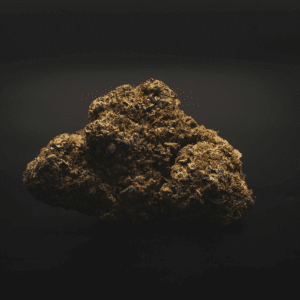
How THCa Might Differ in Causing These Effects
THCa, in its raw form, does not share the psychoactive characteristics of its decarboxylated sibling, THC. Hence, it doesn’t typically induce the euphoric highs or the mental fog that users often associate with cannabis.
You can munch a salad of raw cannabis leaves without worrying about wandering into the land of forgetful elves; your appetite might stay right where it is. However, when THCa converts to THC—say through heating—you may suddenly find yourself in munchie territory!
Specific Side Effects of THCa
While THCa doesn’t produce psychoactive effects when consumed in its raw form, it can still cause some side effects, mainly related to physical reactions. Some users report feeling light gastrointestinal discomfort after consuming THCa in large quantities. This might manifest as a mild stomach ache, especially if your system isn’t quite used to its fibrous nature.
Another area of concern involves sensitivities or allergic reactions. Just like some individuals can’t handle nuts or dairy, others might find their bodies don’t appreciate the raw compounds in cannabis leaves. Symptoms can range from mild rashes to respiratory discomfort if inhaled. If you’ve got allergies galore, it might be wise to start small or consult with a healthcare provider before diving deep into THCa therapy.
Despite these potential hiccups, THCa remains largely well-tolerated by users, with most side effects being mild and easily managed. That said, individual experiences can vary, so it pays to be mindful of how your body reacts.
Psychoactive Effects
The intriguing part about THCa is its lack of immediate psychoactive effects. Unlike THC, THCa leaves your mental faculties clear as a bell, allowing you to tackle your daily tasks without the characteristic haze.
However, this non-psychoactivity is a temporary state—once THCa undergoes decarboxylation, it transforms into the psychoactive powerhouse that is THC. If you intend to stay sober-minded, be careful with how your THCa is consumed!
Physical Side Effects
Most users find THCa’s side effects to be on the milder side of the cannabis spectrum. Occasionally, you might experience slight physical discomforts such as an upset stomach or mild fatigue.
As with any plant-based compound, there’s always a chance for allergic reactions or sensitivities. These can be unpredictable, but common signs include skin irritation or mild respiratory issues. It’s always a good plan to start with lower doses to see how your body reacts.
THCa and Appetite
While THCa flower may not send your hunger signals into a frenzy like THC does, it still holds some intriguing appetite-modulating capacities.
Unlike THC that reliably delivers the munchies, THCa’s influence on hunger is subtler. Some users have reported a gentle boost in appetite when consuming raw cannabis in its THCa-rich form.
However, THCa does interact differently with the body’s metabolism compared to THC. By promoting digestion and nutrient absorption, THCa can contribute to maintaining a balanced diet without the intense cravings associated with its psychoactive counterpart.
Impact on Mental Health
In the realm of mental health, THCa is making its mark with promising results. Early research suggests THCa might have a calming effect on the mind, potentially aiding in the management of anxiety and depression.
Unlike THC, which can sometimes worsen anxiety or induce paranoia, THCa doesn’t trip these psychological traps. Instead, it may support neurotransmitter function that enhances mood stability and mental clarity. Users often find themselves feeling at ease, more so than euphoric, thanks to this cannabinoid’s distinct path of activity that doesn’t interfere with cognitive sharpness.
With each study, THCa paints a picture of a viable non-psychoactive ally in mental health, offering serenity without the storm that sometimes accompanies THC usage.
THCa in Pain Management
When it comes to pain management, THCa demonstrates its potential as a natural alternative to traditional pain medications. Research indicates that its anti-inflammatory properties contribute significantly to alleviating discomfort and chronic pain conditions.
Unlike opioids and synthetic analgesics, THCa offers relief without the risk of addiction or severe side effects. Many patients have found it more manageable for regular use, integrating THCa into their therapeutic routines with fewer concerns about dependency.
While it may not be as potent as THC in inducing profound pain relief, THCa provides a gentler, more sustainable approach, making it an appealing option for those seeking to soothe pain with a more natural touch.
THCa and Seizures
Research into the effects of THCa on epilepsy is an evolving field that has captured considerable attention. While THC is renowned for its applications in reducing seizure frequency, THCa is emerging as a non-psychoactive alternative with promising capabilities.
Several preliminary studies suggest THCa may interact positively with the endocannabinoid system to help manage seizure disorders, though more rigorous clinical trials are needed to cement these findings.
Success stories abound, with many patients and caregivers reporting significant improvements in seizure control after incorporating THCa into their treatment regimen. This anecdotal evidence fosters hope for a future where THCa could be a key component in epilepsy management, offering relief without the cognitive impairment often linked with THC-dominant medications.
THCa for Sleep Disorders
When it comes to tackling sleep disorders, THCa holds potential as a natural sleep aid that distinguishes itself from typical pharmaceuticals. Users have noted that consuming THCa can lead to a noticeable improvement in sleep quality, promoting relaxation and enhancing the sleep cycle without the groggy after-effects commonly associated with traditional sleep aids.
While THC often provides the knockout punch for insomnia with its sedative properties, THCa may work subtly to enhance sleep by reducing anxiety and promoting a calm mental state. This gentler approach can be particularly advantageous for individuals seeking to mitigate sleep disturbances without the risk of dependency or significant changes in mood or alertness the following day.
As research progresses, THCa may well carve out a niche as a preferred option for natural sleep enhancement.
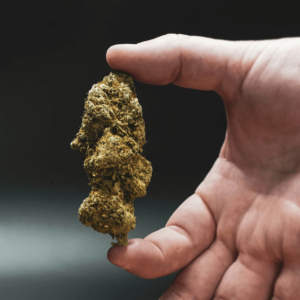
THCa Interaction with Other Medications
THCa’s journey within the pharmacological world is akin to a daring adventurer finding its way in a labyrinth. As with any supplement, it’s crucial to understand how it might interact with others on the medicine shelf. THCa may influence the metabolism of common prescriptions by interacting with enzymes in the liver.
Here are some things to keep in mind:
- Blood Thinners: THCa might have mild effects on anticoagulants, potentially increasing the risk of bleeding. Individuals on blood thinners should approach this cannabinoid with caution.
- Sedatives: When paired with sedative medications, THCa might enhance their effects, leading to increased drowsiness.
- Immunosuppressants: There’s a chance that THCa could subtly alter how the body responds to these medications, though more detailed research is necessary to draw firm conclusions.
Safety first! Always consult a healthcare professional before combining THCa with other medications to avoid unwanted side effects and ensure it complements your health plan.
THCa’s Effect on the Immune System
In the dynamic arena of immunity, THCa is emerging as a player with potential immune-modulating properties. This cannabinoid may influence immune function by interacting with cannabinoid receptors, potentially offering support in managing inflammation. Such properties hint at promising implications for individuals with autoimmune conditions, where overactive immune responses need tempering.
The modulation provided by THCa offers a gentle touch, avoiding the brute force of traditional immunosuppressive therapies. As with many natural compounds, the regulatory impact of THCa could provide a pathway to balance, rather than suppress, the body’s defense mechanisms.
Emerging research continues to unravel these benefits, painting THCa as an intriguing option in the immune-support landscape.
Age and Gender Considerations
When it comes to integrating THCa into a wellness routine, age and gender considerations play a crucial role. The effects of cannabinoids can vary significantly across different age groups and between men and women.
While the versatility of THCa makes it an appealing option for many, it’s essential to understand its impacts within these segments to ensure safe and effective usage. For age considerations, the pivotal factor is brain development, especially in adolescents, while for gender, hormonal differences can influence cannabinoid reactions and efficacy.
Impact on Adolescents
In the younger demographic, particularly adolescents, THCa use should be approached with caution. The teenage years are vital for cognitive and neurological development, and the introduction of any cannabinoid could potentially influence this growth.
Therefore, it’s generally advisable to restrict the use of THCa and other cannabinoids until after the brain has matured, typically around the age of 25. Ensuring responsible usage within this age group can help mitigate risks associated with developmental impacts.
Gender-Specific Effects
Gender can also affect how THCa is processed and experienced by the body. Men and women may respond differently due to variations in hormonal balances and metabolic processes.
For instance, estrogen levels, which differ between genders, have been shown to influence cannabinoid efficacy, potentially making women more sensitive to THCa’s effects.
Understanding these gender-specific nuances helps tailor THCa utilization to achieve optimal benefits while minimizing adverse responses.
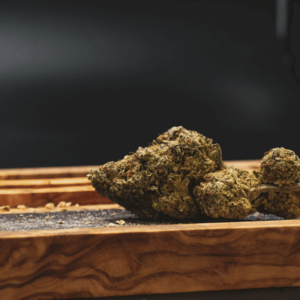
Legal Status and Accessibility
The legal status of THCa varies significantly across different jurisdictions, affecting both its accessibility and popularity.
In areas where cannabis is legalized for medical or recreational use, THCa is more readily available and widely accepted as a potential therapeutic substance. However, in regions with stricter cannabis laws, access can be limited, stalling both personal experimentation and professional research.
The patchwork of legality can create challenges for consistent study, as each area’s laws influence both the scope of research and the willingness of individuals to explore THCa’s benefits.
As legalization progresses, it offers an opportunity to broaden the research landscape, potentially accelerating discoveries related to its medical uses and shaping future approaches toward THCa.
Future Research Directions
Emerging studies are beginning to shed light on the unique properties of THCa, though much remains to be explored.
Current research primarily focuses on its potential anti-inflammatory and neuroprotective effects, as well as its influence on conditions like epilepsy and sleep disorders.
However, comprehensive clinical trials are essential to understand THCa’s full range of therapeutic applications. Further investigation is needed to discern how specific doses interact with various physiological systems, allowing for more precise applications.
Additionally, researching its long-term effects and interactions with other medications will be crucial in solidifying THCa’s place in both the scientific and medical communities.
Conclusion
THCa holds significant promise within the realm of therapeutic cannabinoids, offering a host of potential benefits without the psychoactive effects commonly associated with THC. Throughout this document, we’ve explored its various applications, from managing seizure disorders and sleep enhancement to its interactions with other medications and its potential immune-modulating properties.
As research continues to evolve, a deeper understanding of THCa could unlock new treatment approaches for diverse medical conditions. However, attention must also be given to its potential side effects and how factors like age and gender can alter its efficacy.
Although challenges related to legal status and comprehensive research remain, the future of THCa is undeniably promising. As society embraces a more nuanced view of cannabinoids, THCa could emerge as a vital component in personalized health and wellness strategies, fostering well-being through a holistic, informed approach.
Frequently Asked Questions
1. What are the effects of THCa?
THCa, in its raw form, doesn’t produce the psychoactive effects typically associated with THC. Instead, it’s celebrated for its potential health benefits, which may include anti-inflammatory properties, neuroprotective effects, and immune system support. People use THCa to potentially manage conditions like arthritis, epilepsy, and even nausea without experiencing a high. Perfect for those seeking potential therapeutic benefits without the mind-altering experience!
2. What does a THCa high feel like?
Given that THCa and THC are so closely related, a THCa high feels the same as a THC high. Additionally, a THCa flower high may offer potential therapeutic properties like protection from inflammation and neuroprotective properties. However, unlike THC, THCa is legal all across the United States thanks to the 2018 Farm Bill.
3. Are THCa products safe?
Generally speaking, THCa products are considered safe when used responsibly, but as with all things nature and nurture, there are a few caveats. Quality matters, so opt for products from reputable sources to avoid any unwanted surprises from contaminants. As always, check with a healthcare professional before starting any new supplement, especially if you have existing health conditions or are taking other medications as THCa side effects may impact you.
4. How does THCa affect the brain?
Unlike THC, THCa doesn’t directly affect the brain’s cannabinoid receptors, which means you won’t experience the cognitive alterations associated with a high. However, its potential neuroprotective effects are currently being explored, with some studies suggesting it might support brain health and help manage neurodegenerative conditions. Think of THCa as the friendly cousin who visits your brain, bringing snacks and good vibes, without overstaying their welcome.
5. Does THCa show up on a drug test?
Generally, standard drug tests aren’t on the lookout for THCa specifically. Most drug screenings are designed to detect THC, particularly its metabolite THC-COOH, which is responsible for the psychoactive effects. Since THCa doesn’t convert to THC unless it’s decarboxylated (think heated or burned), it typically remains undetectable in drug tests. However, if your THCa product has undergone any form of heat processing, there’s a chance some THC metabolites might appear on a test. To avoid an unexpected “gotcha!” moment, it’s essential to understand your product and how it’s been processed.





